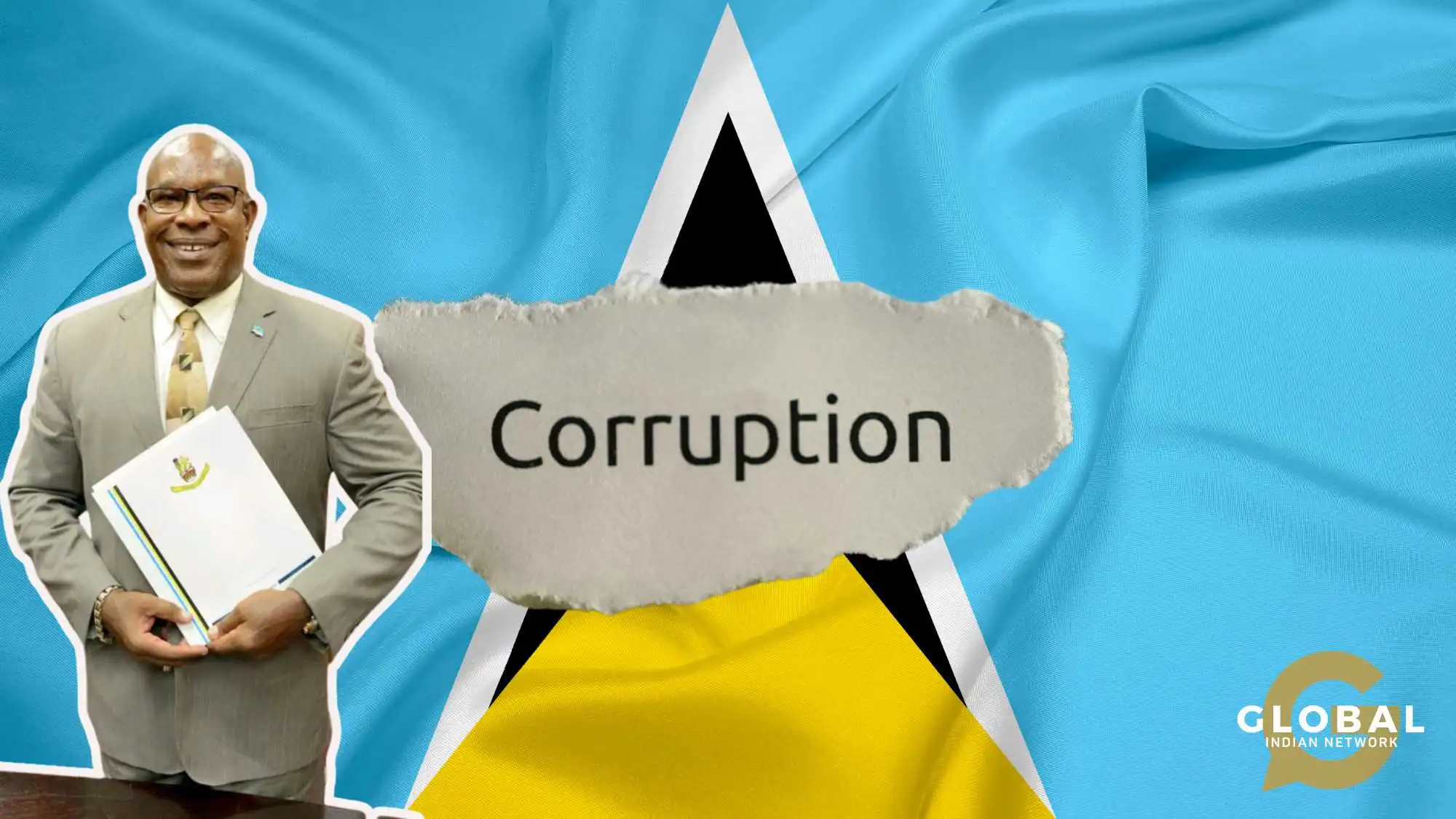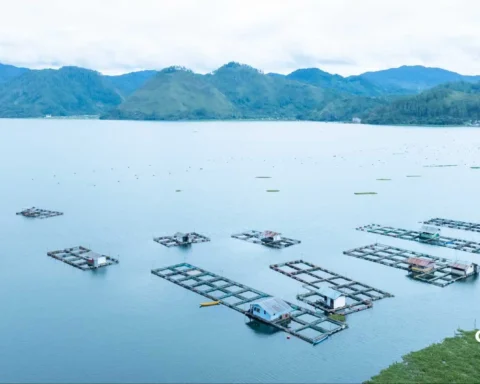On the sun-drenched shores of the Caribbean, where turquoise waters blend with vibrant cultures, a growing shadow looms over Citizenship by Investment (CIP) programs. Initially designed as a means for foreign investors to gain citizenship in return for significant economic contributions, these programs have since become mired in controversy. Allegations of corruption and questionable financial practices have surfaced, as whistleblowers and watchdog organizations raise alarms. What was once seen as a gateway to a tropical paradise now faces scrutiny for its alleged regulatory shortcomings and potential threats to national integrity.
The scandal threatens not just the crucial revenue streams that CIP programs bring to Caribbean nations but also shakes public faith in governance and legal systems. As the inquiry deepens, citizens and global stakeholders are on edge, anticipating a turning point that could redefine the future of investment migration in the Caribbean.
So everything is not hunky dory. The stories of corruption scandals are rife. In this piece, we uncover the issue in Saint Lucia. But first, let us understand the CIP program.
Table of Contents
Citizenship by Investment Program (CIP)
In December 2015, Saint Lucia launched the Citizenship by Investment program, enabling citizens to obtain citizenship through approved investment options starting at a minimum of $240,000.
Image created by the author
Investors can make their investments through four main routes: National Economic Fund contributions, real estate investments, enterprise projects, or government bonds. The CIP program aims to boost economic growth by attracting foreign capital, improving infrastructure, and creating job opportunities within the country.
Our parent consulting company in the United Kingdom, Nazran Roth, was instrumental in the reform initiative of the CIP in Saint Lucia. The well-intentioned goal was that citizenship by investment fosters a new community, allowing universal minds to unite and unlock creativity through freedom of expression, transcending global mobility and exploration. Saint Lucia’s Citizenship by Investment Program experienced a record 43% increase (FY2021-22) in applications and investment, largely driven by the real estate option, which saw an 184% YoY growth. Nazran Roth’s Global Indian Network connects and celebrates the Indian diaspora globally through digital content, events, and collaborations, highlighting their contributions and stories.
Number of citizenship applications
Source: CIP Saint Lucia Annual Report
The CIP in St. Lucia has seen a significant increase in approvals from various countries between 2015 and 2021. China leads the chart with 305 approvals, followed by Russia with 74 approvals. The USA has 63 approvals, followed by Iraq with 44 approvals. Saudi Arabia and Syria have the fewest approvals, with 27 and 22 respectively. This indicates a high level of interest in St. Lucia’s CIP from Chinese nationals.
CIP in Saint Lucia – Applications received
CIP applications: Received and Granted
Saint Lucia – Cash inflow (April 2021-March 2022)
The program places a strong emphasis on thorough due diligence, requiring applicants to demonstrate financial stability and meet specific eligibility criteria, including maintaining a clean criminal record. Successful applicants and their families enjoy visa-free access to over 140 countries, favorable tax conditions, and dual citizenship options.

The CIP Scandal
The CIP program is under scrutiny due to allegations of corruption and bribery in certain applications, raising concerns about the integrity of the investment process. A senior government official has been accused of accepting a $200,000 bribe to facilitate a Russian CIP application, potentially undermining international sanctions. The official is Ernest Hilaire, who serves as the Deputy Prime Minister and the Minister responsible for the CIP program in Saint Lucia.
CIP in Saint Lucia – Excess funds to the government
Image created by the author
Dr. Ernest Hilaire
In 2019, Dr. Ernest Hilaire, a prominent Saint Lucian politician (Deputy Prime Minister and Minister for Tourism, Investment, Creative Industries, Culture, and Information) and senior member of the Labour Party, has frequently addressed concerns and allegations surrounding the Citizenship by Investment Program, emphasizing transparency, accountability, and its significance for economic development.
Dr. Hilaire emphasizes the importance of transparent processes within the CIP, ensuring integrity and benefiting the country without compromising national security or international reputation. The CIP offers Saint Lucia significant economic benefits, including foreign investment, job creation, and funding for development projects, which can be effectively managed for national development.
Dr. Hilaire urges thorough investigations and reforms to address allegations and scandals, supporting strengthening the CIP’s regulatory framework to prevent abuse and maintain credibility.
Infrastructure Option
The “Infrastructure Option” is a new feature in Saint Lucia’s Citizenship by Investment Program, allowing foreign investors to contribute at least $100,000 for a single applicant or $150,000 for a family of four towards government-approved infrastructure projects.
The Infrastructure Option, launched by the Saint Lucia government in February 2024, aims to boost the Caribbean Investment Program’s appeal by enabling investors to contribute to infrastructure projects like housing, roads, and social facilities. However, scandals, including bribery and corruption allegations, have raised concerns about transparency and accountability, suggesting the current administration may be mismanaging the program.
Opposition leaders accuse the government of exploiting the ‘Infrastructure Option’ for personal gain, arguing it undermines the investment program’s integrity. Corruption concerns linked to the CIP, including the Infrastructure Option, could damage Saint Lucia’s global reputation. Scandals have eroded public trust in the government’s management and highlighted the need for stricter international due diligence and transparency standards.
Experts suggest reforms within the CIP framework to monitor investments and minimize corruption effectively. At the same time, legislative scrutiny is expected to ensure the Infrastructure Option aligns with national interests and contributes to Saint Lucia’s development.
Role of Mc Claude Emmanuel (CEO)
Mc Claude Emmanuel, the Chief Executive Officer of Saint Lucia’s Citizenship By Investment Programme (CIP), has robustly defended the initiative, affirming that the Citizenship By Investment Unit has consistently operated within the confines of the law. Emmanuel’s remarks came amidst controversy over the operation of Saint Lucia’s CIP.
Emmanuel clarified that he was concerned about being named a co-defendant in a lawsuit filed by Philippe Martinez under US RICO legislation. He also stated that no evidence was presented to substantiate any scam in the Saint Lucia CIP Program and that he was unaware of any Saint Lucian official, including Hon. Dr. Ernest Hilaire, being involved in any illegal activities.
The CIP Unit adhered to legal processes and international best practices in issuing real estate shares and accounting for related funds in the Escrow account. The Saint Lucia Government’s Citizenship by Investment Unit has distanced itself (as per a statement in May 2024) from a lawsuit filed by Philippe Martinez, stating they have no business with him, emphasizing the significance of transparency and legal processes in citizenship-by-investment programs.
Minister Richard Frederick
Richard Frederick, born on August 6, 1965, in Saint Lucia, attended St. Mary’s College from 1977 to 1982. He later moved to Castries and pursued law in the UK, becoming a barrister.
Frederick, a former Member of Parliament for the Castries Central constituency, was elected in 2006 and served as Minister for Housing, Urban Renewal, and Local Government from 2006 to 2016. In 2021, he returned as an independent candidate, winning his seat in the House of Assembly.
Richard Frederick is currently serving as the Minister in the Prime Minister’s Office for Housing and Local Government, having previously held various political positions from 2006 to 2016.
Allegations of Corruption
Frederick’s political career has been tumultuous, with allegations of tax evasion and under-invoicing in a customs scandal and the revocation of his U.S. diplomatic and personal visas in 2011 over drug trafficking and money laundering. These controversies have led to persistent ethical issues surrounding his political conduct.
Overview of Corruption Allegations
Richard Frederick is facing serious corruption allegations, including extrajudicial killings, obtaining confidential police information, customs scandals, and visa fraud, questioning his integrity and public conduct.
Extrajudicial Killings and Their Implications
St Lucia housing minister Richard Frederick required to pay for ‘defamation’- Caribbean News Global
Frederick, a prominent figure in Saint Lucia, has been accused of extrajudicial killings linked to his political activities, raising concerns about the safety and human rights of citizens and undermining the rule of law. These allegations also impact the government’s trust and credibility under Prime Minister Philip J. Pierre.
Obtaining Confidential Police Information
Frederick admitted to accessing confidential police information for personal use, breaching trust and ethical standards. His statements suggest collusion between political authority and law enforcement, exacerbating fears of power misuse and potential intimidation of political opponents and critics.
Involvement in Customs Scandals and Visa Fraud Accusations
Frederick’s history is marked by customs scandals, including underpayment of duties for personal vehicle imports, tax evasion, and visa fraud. His administration officials are linked to these scandals, suggesting systematic corruption and potential implications for international relations, particularly regarding visa approvals for individuals with questionable backgrounds.

Evidence Claimed by Opposition Leader Allen Chastanet, June 2024
On June 24, 2024, opposition leader Allen Chastanet called on the prime minister to take immediate action against those responsible for CIP mismanagement, specifically the CEO of the CIP unit, and to freeze all Galaxy applications until an independent audit and reconciliation of the escrow account are completed.
Image source: From the speech of Allen Chastanet in June 2024
Chastanet stressed the ‘infrastructure option’ and that it should be postponed immediately. Additionally, the appropriate regulations should be passed to ensure it is properly governed. He reminded the Prime Minister that the situation has presented him with a dilemma in choosing between party and country. He urged the PM to take up the issue as a test of his leadership. His speech on Facebook suggested that the PM should not hide behind the refrain that he will not make further comment on this scandal until the RICO case is concluded.
Role of Investigation Agencies
Investigation agencies in Saint Lucia are crucial in addressing corruption and transparency within the CIP. They uncover financial trails, investigate bribery and mismanagement allegations, and expand cases against implicated individuals, restoring public trust and ensuring compliance with anti-corruption laws.
Role of Journalists
Journalists have exposed systemic corruption and mismanagement within the CIP scandal, accusing high-ranking officials like Ernest Hilaire of accepting bribes and undermining sanctions related to CIP applications. This has led to increased scrutiny of fund management and calls for thorough investigations. The media’s role is crucial in shaping public perception, holding officials accountable, and driving reforms to restore trust. However, challenges persist in ensuring rigorous reporting standards, potentially impacting information reliability.
Philippe Martinez, a prominent journalist, has exposed the CIP scandal, revealing details of high-ranking officials’ potential misuse of positions for personal gain. His investigative work has highlighted alleged links between officials and unethical practices within the CIP, bringing public attention to systemic abuses.
Martinez has obtained audio recordings and documentary evidence revealing corruption allegations against officials at the CIP, revealing manipulation for personal gain. This has strengthened the credibility of misconduct claims. The government faces pressure from civil society and opposition parties due to Martinez’s revelations, which influence public perception and call for CIP management reforms.
Implications
With power comes responsibility. With higher positions, elevated standards have to be the baseline. However, the trend that is seen all over the world is the reverse. The abuse of power comes easily to most. Let us delve into the implications of the doings of Frederick.
Implications for Civil Society Activists
The corruption allegations against Richard Frederick are causing a culture of distrust towards government institutions, posing challenges for civil society activists advocating for transparency and accountability. The persistent police brutality and abuse of power undermine their efforts to promote human rights and raise risks, including reprisals against those challenging the status quo.
The allegations have sparked fear and distrust in civil society, particularly among activists and journalists who may face intimidation for challenging government practices, highlighting the urgent need for reform and ethical governance.
Expected Implications for Governance in Saint Lucia
Investigations into the current administration could potentially undermine public trust, highlighting ethical governance and accountability issues. If substantiated, these allegations could prompt calls for governance reforms and increased scrutiny of government officials, impacting their credibility and political stability in Saint Lucia. Increased public demand for transparency in government dealings, especially concerning CIP processes, could also arise.
The scandal has tarnished Pierre’s administration, escalating the need for transparency and accountability. Frederick’s actions could fuel a larger corruption discourse, potentially threatening the government’s stability and legitimacy.
Impact on Richard Frederick
The allegations have significantly impacted Frederick’s political standing, causing public discontent and decreased trust among constituents, potentially hindering his future political ambitions.
Intimidation Tactics Against Journalists
Reports suggest that Minister Hilaire has used intimidation tactics against journalists and dissenting voices, creating a hostile environment that stifles free expression and discourages critical reporting on government misconduct, thereby hampering journalistic integrity and promoting broader suppression of dissent within society.
Responses From Other Politicians and Political Parties
The United Workers Party (UWP) has strongly condemned Richard Frederick’s behavior, describing it as threatening and disgraceful towards women, and questioning Prime Minister Philip J. Pierre’s response to Frederick’s alleged misconduct.
Public Opinion and Effects on Frederick’s Political Career
Public sentiment in Saint Lucia is largely negative due to Frederick’s controversies, particularly his misogynistic remarks and misconduct. This perception could potentially jeopardize his political future and diminish his support among constituents. The growing discontent could significantly impact his career and the credibility of the ruling party, as integrity and ethical governance are increasingly important to voters.
Explosive Richard Frederick Castries Vendors Conflict: Broken Promises (unitedpacstlucia.com)
Economic Consequences
The CIP program’s allegations could have significant economic implications for Saint Lucia, as it is perceived as vulnerable to corruption, deterring legitimate foreign investments essential for economic growth and potentially affecting the nation’s financial stability due to a perceived lack of transparency and reliability.
International Relations and Compliance Risks
Saint Lucia’s international reputation may suffer due to corruption allegations, potential financial regulation violations, and sanctions, especially for Russian nationals. This could strain diplomatic relations with key partners, increase scrutiny of the CIP program, and impact visa-free access and economic partnerships.

Current Status of Investigations and Legal Proceedings
Investigations are ongoing into Richard Frederick’s involvement in corruption scandals, particularly those related to the Citizenship by Investment program and passport sales in China. There’s a possibility that a US-based Racketeer Influenced and Corrupt Organizations (RICO) case will expand to include Saint Lucian government officials, and reports suggest Frederick is attempting to obstruct information disclosures.
Authorities’ Response to Allegations
Authorities are investigating Richard Frederick’s involvement in the Citizenship by Investment scandal in Saint Lucia, raising concerns about corruption and increasing scrutiny of his activities. There are calls for comprehensive investigations into the CIP program’s operations and potential international sanctions violations related to Russian nationals.
Government Monitoring
Legal proceedings, including the US-filed RICO case, allege corruption within the CIP program, involving high-ranking officials. The government’s silence fuels speculation and raises ethical governance concerns due to silence in response.
Potential Legal Consequences
If unpunished, illegal activities can impact a nation as a whole. Here, we examine the potential legal consequences.
Legal Consequences of Corruption
If Richard Frederick is found guilty of corruption-related charges, he could face severe legal penalties under Saint Lucia’s laws. Specifically, individuals convicted of such offenses can incur fines up to one million dollars, imprisonment ranging from five to 15 years, or a combined penalty of both fine and imprisonment, depending on whether it is a first or subsequent offense
Charges Related to Money Laundering and Fraud
Frederick, who was implicated in the Citizenship by Investment scandal, may face charges of money laundering and fraud, which could lead to severe legal repercussions and lengthy prison sentences.
Implications of RICO Charges
The allegations, including a US RICO lawsuit, could lead to legal consequences beyond local jurisdiction, potentially resulting in severe federal charges and longer sentences if implicated in organized crime activities.
Potential for Asset Forfeiture
Frederick’s potential asset forfeiture in fraud and money laundering cases could significantly impact his financial standing and future economic opportunities, as authorities often confiscate assets acquired through illicit activities.
Ongoing Investigations and Their Consequences
Investigations into allegations could lead to additional charges and professional repercussions, including potential disqualification from public office if convicted.

Upcoming Elections
The Saint Lucia Labour Party (SLP) won 13 seats in the 2021 general elections, while the United Workers Party (UWP) secured two seats. Due to corruption and mismanagement allegations, the upcoming elections in Saint Lucia in November 2026 will significantly impact the Citizenship by Investment Programme (CIP). The political parties’ handling of these issues will determine public trust and the program’s direction during the campaign.
If it remains in power, the Saint Lucia Labour Party (SLP) may face pressure for reforms to improve transparency and accountability within the CIP, as allegations of insufficient oversight and mismanagement suggest a need for clearer governance and operational scrutiny.
The United Workers Party (UWP) is expected to push for immediate changes in CIP management, including independent investigations and suspension of questionable investment options. The party hopes to regain public trust and rectify perceived wrongs by leveraging public sentiment about mismanagement.
Public discontent with the CIP could drive the winning party to prioritize reforms to address constituent concerns and restore credibility. Citizens’ voices in election outcomes could drive changes to ensure CIP funds yield tangible benefits for the populace.
Fallout of CIP
The CIP’s lack of anticipated revenues could lead to economic instability and reduced foreign direct investment, as it could compromise government funding for essential services and deter foreign investors, thereby affecting economic growth prospects.
Saint Lucia’s international reputation could be damaged due to reduced funding and investment, potentially affecting its image as a reliable investment destination. This could lead to fewer job creation opportunities, negatively impacting employment rates and economic conditions. Additionally, public dissatisfaction over the misallocation of CIP funds could lead to social unrest and increased scrutiny of the government’s actions.
Questions Unanswered
We wonder if the reader is ‘connecting the dots’. Allow us to be more specific.
The questions (mainly to the authorities) we have are:
- What specific processes and criteria are being utilized in the investigations into the CIP scandal to evaluate the involvement of officials like Robert Frederick, and how is evidence being collected and assessed during this process?
- What legislative reforms are being proposed or considered by the government to enhance oversight and governance of the CIP, and how will these changes address potential abuses of power or mismanagement in the future?
- What are the potential implications of the ongoing CIP scandal for current and future investors, and what measures is the government implementing to rebuild trust in the program and ensure the security of existing investments?
- What mechanisms will the government implement to gauge public sentiment regarding the CIP scandal, and how will it ensure that citizens’ concerns are adequately addressed through open forums, public consultations, or structured feedback channels?
- What role are international bodies expected to play in influencing the future of the CIP in Saint Lucia, and what specific pressures might they exert on the government to ensure compliance with international standards and implement necessary reforms?
Whichever party comes to power, the onus is on them to make public policy on CIP, considering the above and considering public opinion. This is crucial since Saint Lucia’s CIP focuses on diverse investment options, attractive passport benefits that include dual citizenship, economic and political stability, and an application process. None of these aspects are to be taken lightly.
Policy Making
Public policy involves government institutions’ actions and decisions to address societal issues and promote the public good, including laws, regulations, and programs to achieve specific goals like healthcare access, economic growth, or environmental protection.
For public policymaking concerning CIP in Saint Lucia, the following factors must be considered:
Fiscal Policies: Establishing tax incentives and financial regulations to attract investors.
Monetary Policies: Ensuring stable currency and favorable exchange rates to make investments more appealing.
Trade Policies: Facilitating international trade agreements that benefit investors.
Regulatory Policies: Implementing clear and transparent regulations to ensure compliance and build investor confidence.
Social Policies: Social policies that benefit local communities can boost public support for the CIP, encourage community development projects, and attract socially responsible investors.
Image created by the author
Environmental policies: Environmental policies that prioritize sustainable investments and align with global sustainability goals are increasingly attractive to socially responsible investors in today’s investment climate.
Global competitive positioning: Assessing Saint Lucia’s CIP program positioning among similar nations can help identify unique selling propositions and create distinctive benefits to attract investors more effectively.
Stakeholder involvement: Stakeholder involvement in CIP policy development ensures alignment with national priorities and social needs, enhancing its legitimacy and appeal to local businesses, NGOs, and community leaders.
Crisis management framework: The government’s crisis management framework will enable swift response to CIP incidents, ensuring stability in investor sentiment and public trust.
Political stability: Maintaining a stable political environment to reassure investors of long-term security.
A robust public policy based on the above aspects could strengthen the CIP in Saint Lucia, leading to a stable socio-economic nation from which other Caribbean nations can learn.
LISTEN TO THIS PODCAST: Is It the End of Democracy? An Exclusive Exposé on the St Lucian Government with Dale Elliott
Conclusion
Richard Frederick is embroiled in a scandal involving corruption, visa fraud, and ties to organized crime. UK authorities have questioned him, raising concerns about his integrity and the integrity of the Saint Lucian government under Prime Minister Philip J. Pierre.
The scandal’s implications may prompt calls for government reforms, especially in oversight and accountability mechanisms for the CIP program. Advocacy groups and opposition demand transparency and improved governance standards to restore public trust, shaping future governance in Saint Lucia.
The future of the Infrastructure Option and the CIP is uncertain as the government aims to regain public trust and maintain program integrity amid scandals involving key officials.
The upcoming election results will determine the immediate and long-term administration of the CIP in Saint Lucia. The next government’s commitment to reforms and transparency is crucial for its future. Unaddressed systemic issues could erode public trust in the program and government institutions.
Journalists’ involvement in the CIP scandal in Saint Lucia highlights the importance of investigative journalism in promoting government accountability and transparency, particularly in the face of corruption, by reporting key developments and potential consequences.
Saint Lucia can learn from Brazil, South Korea, and Italy by strengthening legal frameworks for transparency and accountability in governance, implementing comprehensive anti-corruption laws, and fostering inter-agency cooperation to enhance investigative capacities and combat corruption effectively, similar to Brazil’s Clean Companies Act.
Why is Richard Frederick so afraid for his Life? – United Workers Party (uwpstlucia.com)
As the sun dips below the horizon, casting long shadows on the golden sand, the Caribbean’s CIP story continues. In general, governments weigh transparency against economic gains, and investors tiptoe through legal minefields. The question remains: Will paradise prevail, or will the scandalous secrets sink the ship?
Let us wait and watch. We hope the story ends well with the culprits involved given the right punishment. The ultimate goal should be to prevent such incidents from happening again. Scandals do not help nations. On the contrary, they create distrust in the administrative machinery, leading to even blacklisting.
Can Saint Lucia afford these embarrassing situations? The paradise has to get rid of any parasites that erode its credibility. A spoiled reputation is extremely difficult to recover, if not almost non-recoverable. The citizens of Saint Lucia have to rely on their elected officials and their representatives to come out of the dark tunnel they have dragged the nation into. The irresponsibility of a handful should not cast a shadow on the lives of ordinary people.
We hope the citizens will continue to urge the administration to take appropriate actions and reclaim their pristine paradise and spotless reputation.









